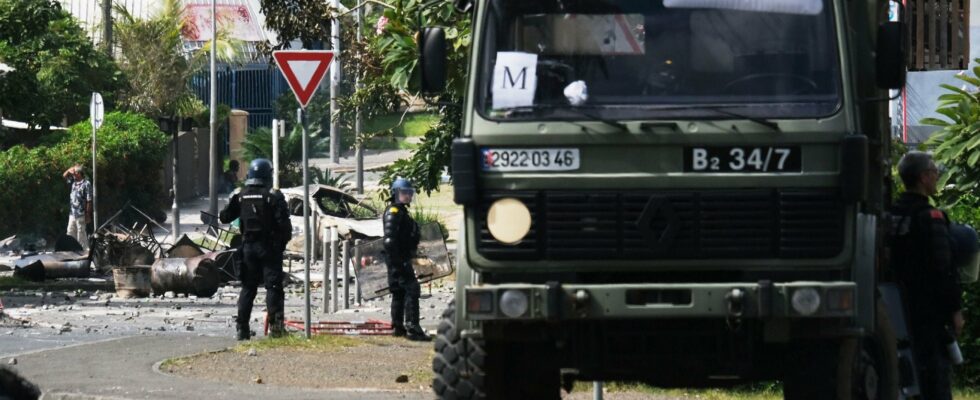Despite the implementation of a curfew, Nouméa woke up this morning to ransacked streets, burned and looted businesses. A second person was killed Wednesday during the violent riots that have shaken New Caledonia since Monday, we learned from the High Commission of the Republic in the French archipelago in the South Pacific. The state representative’s office gave no further details on the circumstances of this case. High Commissioner Louis Le Franc announced to the press earlier on Wednesday the death of a first person in the urban area of Nouméa, victim of gunshots.
The President of the Republic Emmanuel Macron will convene a Defense and Security Council this morning.
At the end of the night, the representative of the State in the French archipelago of the South Pacific reported “serious disturbances to public order […] still in progress”, including “numerous fires and looting of businesses and public establishments” and announced more than 130 arrests since the start of the violence, the most serious since the deadly ones of the 1980s. “Several dozen rioters have been placed in police custody and will be presented to justice,” said the High Commission of the Republic in a press release.
In addition, “around sixty injured are to be deplored among the police”, he specifies, affirming that “a new rebellion with an escape attempt took place at the Nouméa penitentiary center.” A more precise assessment was delivered this morning by the Minister of the Interior and Overseas Territories Gérald Darmanin, stating that “hundreds” of people were injured, including “a hundred” police officers and gendarmes, he said. declared on RTL. “Dozens” of “houses and businesses” were burned, he also announced.
The tension is such that in a letter addressed to the President of the Republic, the president of the southern province of the archipelago, Sonia Backès, calls for the establishment of a state of emergency, “in particular by committing the army to alongside the police and gendarmerie forces. “We are in a state of civil war,” she lamented.
Expansion of the electorate
Thousands of kilometers away, in mainland Paris, the National Assembly adopted on the night of Tuesday to Wednesday by 351 votes to 153 the text which expands the electoral body. It is the text which reignited tensions. The reform will still have to gather three-fifths of the votes of the parliamentarians meeting in Congress at Versailles. In a letter sent Wednesday to Caledonian representatives condemning “unworthy” violence and calling for “calm”, Emmanuel Macron specified that the Congress would meet “before the end of June”, unless separatists and loyalists start agree between now and then on a more global text.
The constitutional bill aims to expand the electorate in provincial elections, crucial in the archipelago. But supporters of independence judge that this thaw risks “even further minimizing the indigenous Kanak people”. In front of the press, the pro-independence president of the territory’s government, Louis Mapou, “took note” of the reform voted in Paris but deplored an “approach which heavily impacts our ability to conduct the affairs of New Caledonia”.
Calls for calm
In a press release published on Facebook and relayed by our colleagues from La1ère, the FLNKS, independence party, launches “an appeal for appeasement”. He calls for the “lifting of barriers to allow free access of the population to products, services and basic needs”. President Emmanuel Macron also called for calm, condemning “unworthy violence”.
On Wednesday morning, due to a lack of supplies in stores, food shortages caused very long queues in front of stores. Some in Nouméa were stormed, others were almost empty, having no more bread or rice to sell. In a provisional report made public on Tuesday, the Minister of the Interior and Overseas Territories Gérald Darmanin reported “more than 70 police officers and gendarmes injured” in the violence. And “80 business leaders saw their production tools burned or destroyed,” he told the Assembly on Tuesday.
The first altercations between demonstrators and the police began on Monday, on the sidelines of a pro-independence mobilization against constitutional reform. In fear of getting bogged down, elements of the GIGN, the RAID (its equivalent for the police), four squadrons of mobile gendarmes and two sections of the CRS 8, a unit specializing in the fight against urban violence, were mobilized .
